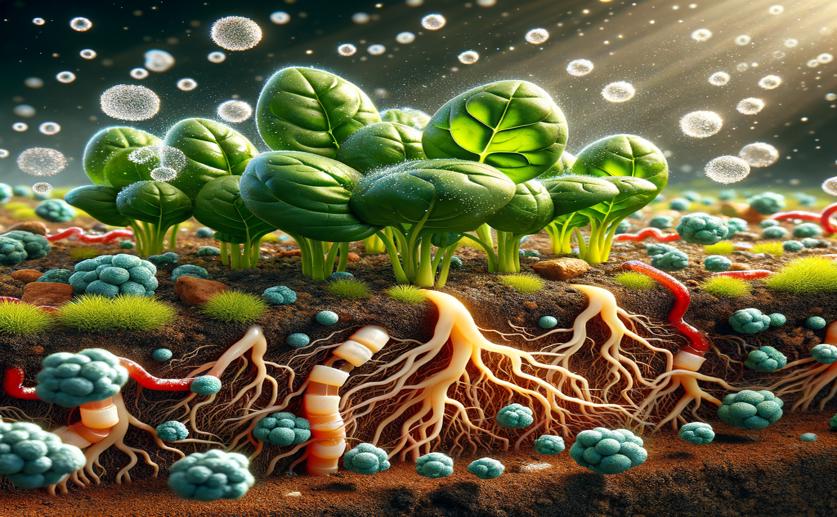
How Adding Biochar Helps Bacteria Boost Nutrients in Spinach Grown with More CO2
Jim Crocker
17th August, 2024

Image Source: Natural Science News, 2024
Key Findings
- The study by Nanjing University found that biochar application at 1.5% significantly increased beneficial soil bacteria under elevated CO2 conditions
- Biochar improved soil nutrient levels, notably nitrogen, phosphorus, and potassium, under higher CO2
- Spinach grown with biochar under elevated CO2 showed enhanced growth, photosynthetic pigments, and higher essential nutrient concentrations in roots and shoots
AgricultureEnvironmentPlant Science
References
Main Study
1) Effect of biochar amendment on bacterial community and their role in nutrient acquisition in spinach (Spinacia oleracea L.) grown under elevated CO2.
Published 14th August, 2024
https://doi.org/10.1016/j.chemosphere.2024.143098
Related Studies
2) Evaluating fundamental biochar properties in relation to water holding capacity.
3) Microbial mechanism of biochar addition on nitrogen leaching and retention in tea soils from different plantation ages.
4) Climate Change, Crop Yields, and Grain Quality of C3 Cereals: A Meta-Analysis of [CO2], Temperature, and Drought Effects.



 30th July, 2024 | Greg Howard
30th July, 2024 | Greg Howard